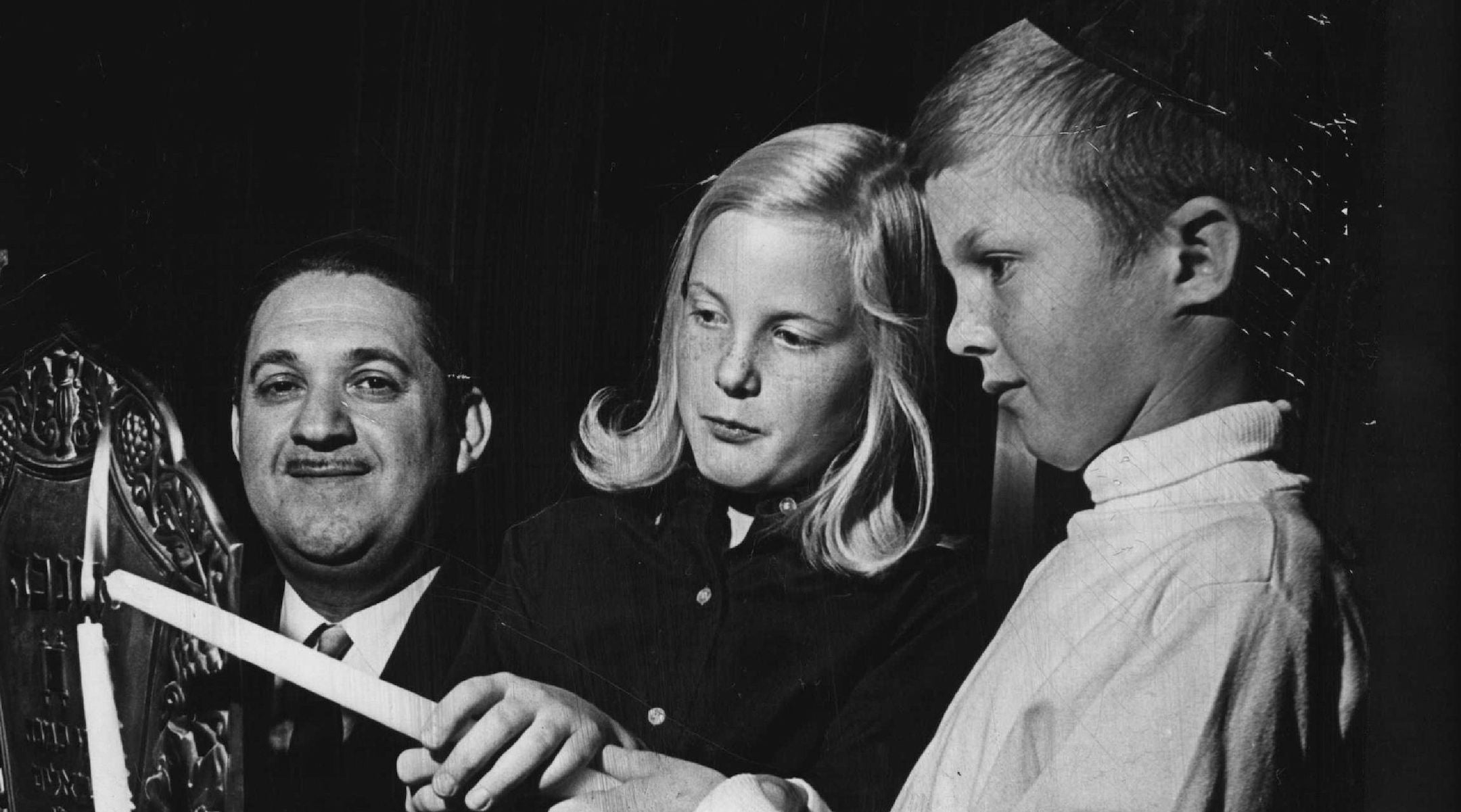Jewish communities throughout the United States began preparations today to deal with the frequently abrasive problem of Yule and Chanukah observances in the nation’s public schools. Chanukah begins this year on December 18.
The standard position, enunciated several years ago by the National Community Relations Advisory Council, is that all religious observances, whether Christian or Jewish and whether done separately or jointly, violate the constitutional principle of church-state separation. In recognition of the fact that majority opinion is often publicly hostile to attempts to bar Christian observances, local Jewish Community Relations Councils began issuing statements urging parents not to take individual action in such situations without prior consultation with the JCRC.
A typical statement was issued by the JCRC of Minnesota which reiterated the position that all such observances in public schools violated the church-state principle and then suggested guidelines in cases where Christian religious holiday observances are held in public schools. In such situations, the JCRC declared, Jewish children have a right to refrain from participation. “We recommend that the local Jewish communities take such action as may be appropriate to safeguard this right of non-participation,” the statement stressed.
The statement then warned that “uncoordinated complaints or representations, whether by parents or school children or by others, may hinder rather than help toward favorable resolutions.” Accordingly, the JCRC urged that no action should be taken by Jewish parents, or organizations “without consultation in advance with the Minnesota Rabbinical Association” or the JCRC.
WASHINGTON JEWISH COUNCIL ALERTS PARENTS AND STUDENTS
The Jewish Community Council of Greater Washington issued a policy statement in which public school students and their parents were alerted that: 1. They need not and should not participate in religious observances of any kind, whether Christian or Jewish, in the guise of celebrations and school exercises; 2. That they should not involve themselves in controversy without first consulting the office of the Jewish Community Council for guidance.
The Jewish Community Relations Council of Camden similarly urged local Jewish parents, groups and leaders to consult first with the JCRC on such problems. The JCRC said that “since this is a very sensitive public relations area, experience has demonstrated” that such problems should be handled through the JCRC. The statement noted that while the issue had not been significant in the Camden area in recent years, “questions do come up about either a program planned in an individual classroom or on a school-wide basis with respect to the religious or sectarian influences in that program which may be inconsistent with the concept of separation of church and state.”
The JCRC disclosed that it had held talks with school officials in Camden County and that it felt that “school superintendents and principals are well aware of the laws and directives governing religious practices in the school system.” The community relations agency said that in recent years there had been less need to point out to school authorities the desirability of refraining from “emotionally-charged” religious content in school programs usually held in connection with the Yule holiday.
LOS ANGELES 600 PUBLIC SCHOOLS RECEIVE OFFICIAL INSTRUCTIONS
Action on the problem from school authorities was reported in Los Angeles, where School Superintendent J. P. Crowther issued the school district’s annual bulletin on observances. The bulletin was sent to administrators of the district’s 600 schools and to heads of all school administrative and business offices.
The theme of the annual bulletin was that the development of holiday programs at each school should be left to the discretion of the individual principal “who best knows the local community.” The bulletin, first issued seven years ago, was prepared by a committee of school and community leaders representing all major faiths.
Apparently bypassing the constitutional issue, the bulletin declared that “to preserve the spirit of goodwill that is characteristic of the Christmas season, administrators should make every effort to plan and conduct Christmas observances in a manner that will reflect respect for the religious sensibilities of all students and members of the staff.”
The bulletin asserted that “some religious holidays have become part of our American culture. In recognizing these holidays, the school should be sensitive to its obligation to support and protect the religious development of every student in its charge, in whatever religious tradition he and his family embrace.” The bulletin then noted that “much of our finest music is of a religious nature and, as such, may be used in connection with school programs.” However, the bulletin added, “highly sectarian scenes and tableaux in classrooms and assembly halls should be avoided.”
JTA has documented Jewish history in real-time for over a century. Keep our journalism strong by joining us in supporting independent, award-winning reporting.
The Archive of the Jewish Telegraphic Agency includes articles published from 1923 to 2008. Archive stories reflect the journalistic standards and practices of the time they were published.




